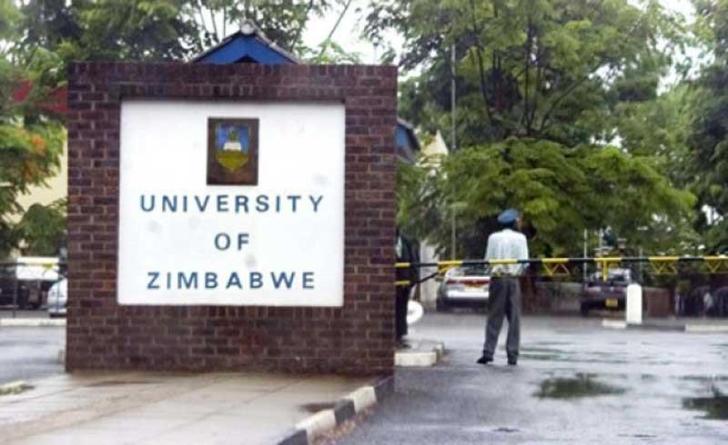News / National
Lecturer strike at UZ deepens
7 hrs ago | Views

The Association of University Teachers (AUT) has accused the University of Zimbabwe (UZ) of deliberately stalling wage negotiations while exploiting the labour of part-time staff brought in to replace striking lecturers, as the salary deadlock enters its third month.
Lecturers at UZ are demanding a salary increase to US$2,250 per month, citing the rising cost of living and unsustainable working conditions. However, AUT spokesperson Professor Obvious Vengeyi says no meaningful offer has been presented by the government or university authorities despite earlier promises of engagement.
"This is a clear strategy by the employer to buy time while we continue to work under unjust conditions. We are being used as cheap labour," Vengeyi told the media this week. "It's cruel. But in principle, both non-academic and academic staff are now united. There is no going back."
Vengeyi confirmed that all state university unions - covering both teaching and non-teaching staff - attended a conciliation hearing on June 17, but proceedings were once again postponed to July 8. He said the continued adjournments are contributing to frustration and mistrust among university employees.
In a significant show of unity, non-academic staff have pledged to join the industrial action, further escalating pressure on the university administration.
Meanwhile, UZ students have voiced strong support for their lecturers, with many expressing concerns over the long-term effects of the prolonged strike on their education and career prospects.
Speaking on behalf of the Zimbabwe National Students Union (Zinasu) UZ chapter, spokesperson Darlington Chigwena said the quality of education at the institution is already declining.
"Our future has already been compromised. The review of UZ qualifications is now under question because the academic environment is collapsing," Chigwena said.
"We are in full solidarity with our lecturers. Their return means the restoration of quality and credible education. If our lecturers are treated fairly, we as students will also benefit."
Chigwena emphasised that students understand their position as "workers in transit" and are committed to fighting for the rights of academic staff - rights they hope will be extended to themselves in the future.
A large-scale picketing demonstration has been scheduled for Monday, with students expected to join lecturers en masse. "We will be there in numbers - as many as the sand of the sea - to show our solidarity," Chigwena said.
The University of Zimbabwe has not issued any official statement regarding the ongoing strike or the allegations raised by AUT.
As the impasse continues with no end in sight, pressure is mounting on the government and university administration to urgently address the demands of academic staff and restore normalcy to the country's flagship higher learning institution.
Lecturers at UZ are demanding a salary increase to US$2,250 per month, citing the rising cost of living and unsustainable working conditions. However, AUT spokesperson Professor Obvious Vengeyi says no meaningful offer has been presented by the government or university authorities despite earlier promises of engagement.
"This is a clear strategy by the employer to buy time while we continue to work under unjust conditions. We are being used as cheap labour," Vengeyi told the media this week. "It's cruel. But in principle, both non-academic and academic staff are now united. There is no going back."
Vengeyi confirmed that all state university unions - covering both teaching and non-teaching staff - attended a conciliation hearing on June 17, but proceedings were once again postponed to July 8. He said the continued adjournments are contributing to frustration and mistrust among university employees.
In a significant show of unity, non-academic staff have pledged to join the industrial action, further escalating pressure on the university administration.
Meanwhile, UZ students have voiced strong support for their lecturers, with many expressing concerns over the long-term effects of the prolonged strike on their education and career prospects.
Speaking on behalf of the Zimbabwe National Students Union (Zinasu) UZ chapter, spokesperson Darlington Chigwena said the quality of education at the institution is already declining.
"Our future has already been compromised. The review of UZ qualifications is now under question because the academic environment is collapsing," Chigwena said.
"We are in full solidarity with our lecturers. Their return means the restoration of quality and credible education. If our lecturers are treated fairly, we as students will also benefit."
Chigwena emphasised that students understand their position as "workers in transit" and are committed to fighting for the rights of academic staff - rights they hope will be extended to themselves in the future.
A large-scale picketing demonstration has been scheduled for Monday, with students expected to join lecturers en masse. "We will be there in numbers - as many as the sand of the sea - to show our solidarity," Chigwena said.
The University of Zimbabwe has not issued any official statement regarding the ongoing strike or the allegations raised by AUT.
As the impasse continues with no end in sight, pressure is mounting on the government and university administration to urgently address the demands of academic staff and restore normalcy to the country's flagship higher learning institution.
Source - NewZimbabwe



























